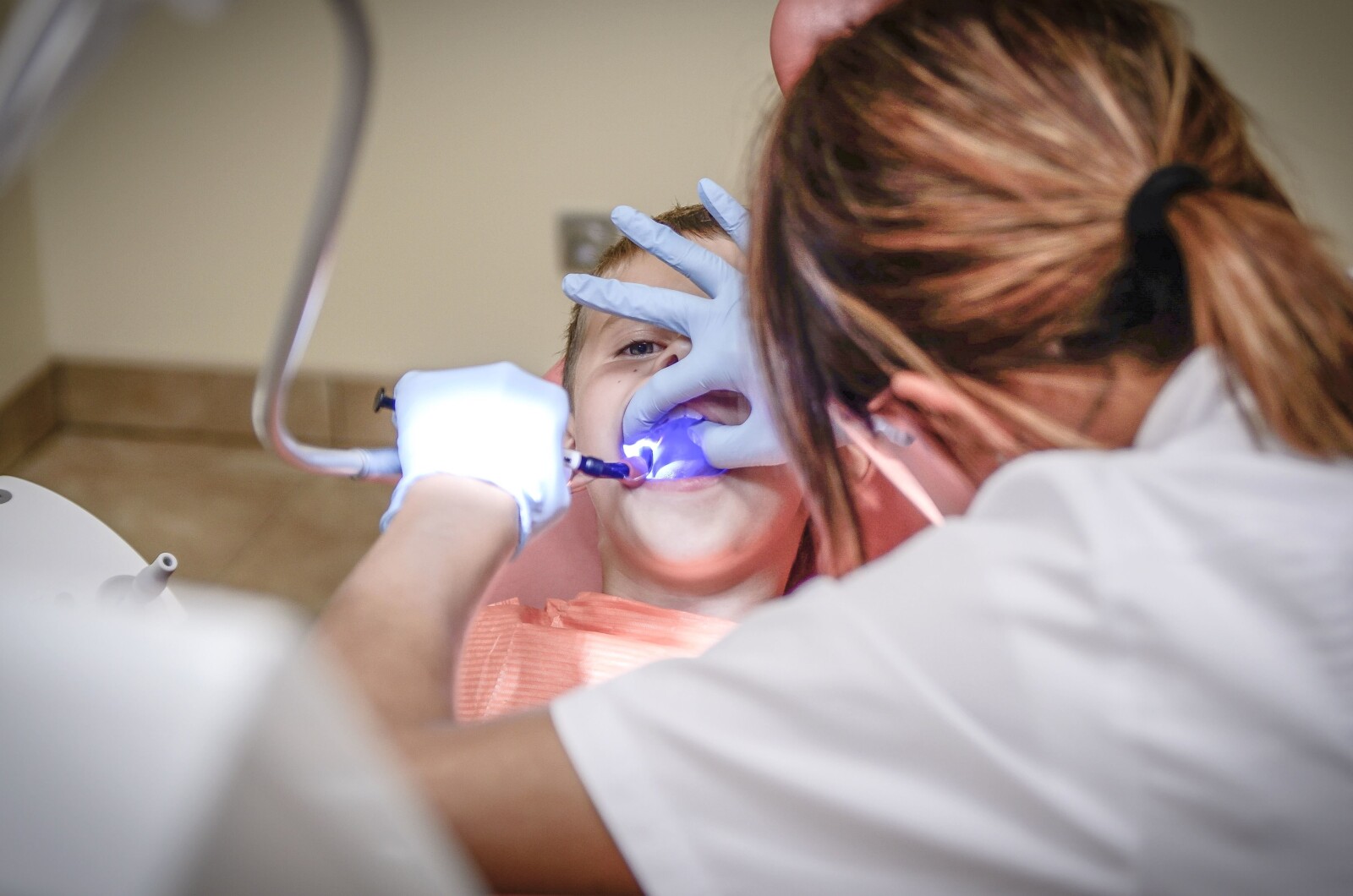Children’s Comprehensive Health Guide
Navigating the complex landscape of children's health can be daunting for parents and caregivers. Our comprehensive guide demystifies pivotal aspects, from newborn screenings to preteen mental health. It provides practical strategies for ensuring optimal health outcomes throughout childhood's formative years. Get ready to become the informed advocate your child needs on their health journey. Welcome to your indispensable resource - the Children's Comprehensive Health Guide.

Key Takeaways
- Regular doctor visits and well-baby visits are crucial for the health of newborns and babies.
- Newborn screening is important for detecting rare but serious conditions.
- Babies' growth and development should be assessed during well-baby visits, and any warning signs should be reported to the doctor.
- Childhood health issues such as bullying, childhood obesity, developmental disorders, and mental illnesses are prevalent and require attention and support.
Understanding the Health Needs of Newborns and Babies
In the first crucial two years of life, newborns and babies undergo numerous health milestones and medical screenings essential for their growth and development. These include immunizations aimed at preventing common illnesses and the establishment of regular well-baby visits to monitor their progress. Medical professionals also guide parents on promoting healthy sleep habits, a critical element for babies' cognitive and physical development. Besides, healthcare providers assess the babies' weight gain, motor skills, and sensory development, ensuring they are on the right track. Any signs of delay or irregularities are addressed promptly, mitigating potential long-term impacts. Furthermore, advice on proper nutrition and teething remedies are given. Therefore, understanding and addressing the health needs of newborns and babies are fundamental in laying a healthy foundation for their future.
Navigating Vaccinations and Medical Screenings
The journey through childhood is marked by a series of vaccinations and medical screenings, and understanding their significance is crucial for ensuring a child's optimal health and development. Adherence to vaccination schedules is paramount, as these provide immunity against potentially serious diseases. Pediatricians typically offer these vaccines at regular check-ups, which are important for monitoring growth and development. These visits also allow healthcare professionals to conduct necessary medical screenings, from vision tests to hearing assessments. Early detection of any potential issues through these screenings can lead to prompt intervention and treatment, significantly improving the child's health outcomes. Therefore, understanding and navigating vaccinations and medical screenings are integral parts of maintaining a child's health.
Monitoring Growth and Development in Infants
With an emphasis on the importance of tracking the growth and development among infants, parents and healthcare providers play a critical role in ensuring the health and wellbeing of the youngest members of our society. Regular well-baby visits allow professionals to monitor infants' growth patterns and assess their progress through key developmental stages. Infant milestone tracking is a crucial tool in recognizing potential issues early and promoting healthy growth and development. These milestones, such as reaching for objects, responding to sounds, and achieving weight gain, provide a roadmap for assessing normal development. However, it's important to remember that each child is unique and may reach these milestones at their own pace. Consistent communication between parents and healthcare providers is key to identifying any concerns promptly.
Recognizing and Addressing Hearing Loss in Babies
During the early stages of a child's life, it is crucial to be vigilant for signs of hearing loss, as early detection and treatment can significantly improve future language and speech development outcomes. Lack of response to loud noises, or not being startled by sudden sounds are indicators of possible hearing impairment. Preventing hearing loss in babies can be achieved through regular auditory screening and avoiding exposure to loud noises. If any signs of hearing loss are observed, early intervention for hearing loss in infants is paramount. This could include the use of hearing aids or cochlear implants, depending on the degree of hearing loss. Remember, prompt and effective intervention can pave the way for optimal language and social development despite the hearing impairment.
Early Eye Health and Vision Development
Ensuring a child's eye health and vision development begins at birth, and just as their bodies grow rapidly, so too does their vision. Understanding pediatric eye exams is crucial for parents as these help detect any abnormalities early. Pediatric eye exams involve a series of tests designed to evaluate a child's vision and check for eye diseases. They are usually performed by an ophthalmologist or optometrist and may include tests for visual sharpness, eye alignment, and overall eye health. Common eye conditions in children include refractive errors (the need for glasses), strabismus (misalignment of the eyes), and amblyopia (lazy eye). Early detection and management of these conditions are vital to prevent long-term vision impairment, emphasizing the importance of regular pediatric eye exams.
Dental Care From First Tooth to First Year
As soon as the first tooth pops up, usually around six months, and before a child's first birthday rolls around, parents should gear up for their child's first dental visit, setting the stage for a lifetime of good oral health. The first dental appointment is a crucial step in establishing good dental hygiene habits in children. Dentists educate parents about proper cleaning procedures, teething remedies, and the importance of regular check-ups. Teething can be a challenging time for both parents and infants, but there are numerous safe and effective teething remedies available. From chilled teething rings to gentle gum massages, these strategies can alleviate the discomfort associated with the emergence of the first tooth. Remember, early dental care is vital to ensure your child's bright, healthy smile.
Coping With Teething: Tips and Recommendations
Teething, a significant milestone in a child's growth, often brings about discomfort and irritability, but with proper understanding and effective strategies, parents can alleviate their baby's teething pain successfully. Managing teething discomfort can be achieved through various safe teething remedies such as the use of a cooled teething ring or a clean, damp cloth for the baby to chew on. Massaging the baby's gums with a clean finger can also provide relief. For persistent discomfort, it's advisable to consult a pediatrician who may recommend suitable pain relievers. Avoid teething gels with benzocaine due to potential health risks. Instead, opt for natural, safe teething remedies and remember, every child is unique and what works for one may not work for another.
The Impacts and Management of Birth Defects
Birth defects, a common health concern, present significant challenges for children and their families, and managing these conditions requires comprehensive medical care and effective support systems. The impacts of birth defects on families can be profound, affecting emotional well-being, financial stability, and overall quality of life. Parents may experience stress, depression, and feelings of guilt, while siblings may feel neglected or anxious.
To manage birth defects, families can leverage various support and resources. Medical experts, such as pediatricians, therapists, and genetic counselors, play pivotal roles in care provision. Non-profit organizations and governmental agencies also offer educational resources, financial assistance, and emotional support. Active participation in support groups can further help families navigate through their unique journeys, fostering resilience and hope.
The Long-Term Consequences of Bullying
In the realm of children's health concerns, the long-term consequences of bullying hold a significant place due to their potential to influence both mental and physical wellbeing into adulthood. The long-term effects of bullying on mental health can be profound, potentially leading to anxiety, depression, and suicidal ideation. Moreover, bullied children may develop unhealthy coping mechanisms such as overeating, thus propelling them into a cycle of childhood obesity. The impact of childhood obesity on adult health outcomes is often detrimental, contributing to conditions like heart disease, diabetes, and even certain types of cancer. Therefore, addressing bullying and obesity in childhood not only protects immediate health but also mitigates potential long-term health risks.
Addressing Childhood Obesity and Related Health Concerns
Nearly one in five school-aged children in the United States is dealing with obesity, and this alarming statistic necessitates a comprehensive approach towards understanding, preventing, and managing this pervasive health concern. Childhood obesity prevention starts with the promotion of healthy eating habits from an early age. Parents, schools, and communities all play a crucial role in this endeavor. Nutritious, balanced meals and regular physical activity should be the norm, not the exception. The incorporation of health education in school curricula can also contribute significantly to instilling these habits. Regular health check-ups to monitor growth and identify any potential issues early are also essential. Childhood obesity is a preventable health concern, and collective efforts can lead to a healthier future for our children.
Identifying and Managing Developmental and Learning Disorders
Understanding and addressing developmental and learning disorders in children require a multifaceted approach, combining vigilance from caregivers, regular health check-ups, and professional intervention when necessary. Identifying early signs of these disorders is crucial to ensure timely and effective treatment. These signs may include difficulties in speech, social interactions, and cognitive or motor skills. Intervention strategies for developmental disorders generally involve a combination of therapies tailored to the child's individual needs. These could include speech and language therapy, occupational therapy, or behavioral therapies. In managing these disorders, promoting mental well being in children is vital. This might involve creating a supportive environment at home and school, providing opportunities for positive social interactions, and encouraging hobbies and activities that boost self-esteem and resilience.
The Rise of ADHD Diagnosis and Treatment Options
With the burgeoning rates of ADHD diagnoses among children and the increasing array of treatment options, it's crucial for parents and caregivers to stay informed and engaged in their child's health journey. The rise of ADHD diagnosis has led to concerns about ADHD misdiagnosis, prompting a need for stringent diagnostic criteria to ensure accurate identification. Misdiagnosis can result in unnecessary medication and overlooked underlying conditions. In tandem, the exploration for alternative treatments for ADHD has intensified. These include behavioral interventions, dietary changes, and neurofeedback. Research supports the integration of such treatments with conventional medication for a comprehensive approach. This multifaceted strategy is key to managing ADHD, reinforcing the importance of a tailored, individualized treatment plan for each child.
Understanding Pediatric Diabetes and Treatment Options
As we shift our focus to another critical health issue, pediatric diabetes, it is essential to comprehend not only the signs and symptoms, but also the various treatment options available. Pediatric diabetes, a chronic metabolic disorder, is increasing globally, stressing the need for effective prevention strategies. Pediatric diabetes prevention strategies include maintaining a healthy weight, consuming a balanced diet, and regular physical activity. When prevention fails, treatment becomes necessary. Advances in pediatric diabetes research have expanded treatment options beyond insulin injections to include insulin pumps, continuous glucose monitors, and even artificial pancreas systems. Each treatment plan is customized to the child's needs and lifestyle, aiming to maintain blood glucose levels within a target range and prevent complications. Regular monitoring and management is critical to ensure the child's health and well-being.
Safe Use of Medications in Children and Preteens
Nearly 50% of all children in the U.S. take one or more medications each week, making it crucial to understand the safe use of medications in children and preteens. Safe medication administration begins with a precise understanding of the drug's dosage, purpose, and potential side effects. Parents and caregivers should always consult a healthcare provider before administering any new medication. Equally important is the awareness of potential drug interactions, as certain medications may interact negatively when combined. It's advised to maintain a current list of all medications a child is taking to share with healthcare providers. This promotes informed decisions, reducing the risk of harmful interactions. Remember, safe medication practices are key to ensuring a child's health and wellbeing.
Physical and Mental Changes in Preteens: What to Expect
During the preteen years, your child will undergo numerous physical and mental changes, and understanding what to expect can help you guide them through this critical stage of development. This period, typically marked by puberty development, is characterized by rapid growth and hormonal changes. Girls may experience breast development and the onset of menstruation while boys might start to notice facial hair and voice deepening. Mental changes are also prominent, as your child starts to develop a more complex understanding of the world and their place in it. Expect mood swings and a newfound desire for independence. Understanding these changes can help you provide the emotional support your preteen needs during this transitional period.
Frequently Asked Questions
How Can Parents Support Their Child’s Mental Health During the Transitional Preteen Years?
To support their child's mental health during the transitional preteen years, parents can utilize strategies such as preteen stress management and emotional resilience building. Encouraging open communication, teaching coping mechanisms, and promoting a positive self-image can help preteens manage stress. Emotional resilience building, including fostering problem-solving skills and emotional intelligence, equips preteens to handle challenges. Regular check-ins and professional help, if needed, can ensure a healthy mental state during this formative period.
What Are Some Signs That a Child May Be Struggling With Bullying That Parents Should Look Out For?
Bullying indicators in children can vary, but common signs include sudden changes in behavior, unexplained injuries, lost or damaged personal items, avoidance of social situations, and declining academic performance. Additionally, the child might appear unusually upset, withdrawn, or anxious. Establishing open communication and providing victim support are crucial steps in addressing these issues. Parents should remain vigilant for these signs to ensure prompt intervention and resolution.
How Can Parents Encourage Healthy Eating Habits to Prevent Childhood Obesity?
With childhood obesity tripling since the 1970s, healthy eating habits are crucial. Parents can encourage this through meal planning strategies, carefully selecting nutritious ingredients and involving children in the preparation process. Additionally, garden-based learning offers a hands-on approach to understand the source of food. Planting, nurturing, and harvesting their own vegetables can foster appreciation for healthy produce, making children more likely to incorporate them into their diets. These strategies can significantly contribute to preventing childhood obesity.
What Are Some Non-Pharmaceutical Interventions or Therapies Available for Children Diagnosed With Adhd?
For children diagnosed with Attention Deficit Hyperactivity Disorder (ADHD), non-pharmaceutical interventions are often considered. Behavioral interventions play a crucial role in managing ADHD symptoms, focusing on modifying the child's behavior through reinforcement strategies. Another non-pharmaceutical approach is neurofeedback therapy, which uses real-time displays of brain activity to teach self-regulation of brain function. These therapies can be used as standalone treatments or in conjunction with medication, depending on the child's needs.
How Can Parents and Caregivers Help Ease a Baby’s Discomfort During Teething, Aside From Using Medications?
Teething can be a tough time for babies, causing discomfort and unease. Parents and caregivers can help without using medications by employing natural remedies and soothing techniques. Chilled teething rings or washcloths offer cooling relief when chewed on. Gentle gum massages can also alleviate pain. Soothing distractions such as soft music or a calming bath can be beneficial. Feeding cold foods like applesauce or yogurt may also provide comfort. Always observe for safety and effectiveness during implementation.
Conclusion
Navigating the intricate labyrinth of children's health, from infancy to preteen years, is akin to a compelling journey of discovery and vigilance. This comprehensive guide serves as a compass, pointing towards vital health milestones, potential challenges, and remedies. It encourages a proactive approach to vaccinations, regular check-ups, mental health, and appropriate medication use, ultimately aiming for the desired destination: optimal health outcomes for children.

This post has been generated by AI and was not reviewed by editors. This is Not legal advice. Please consult with an attorney.




